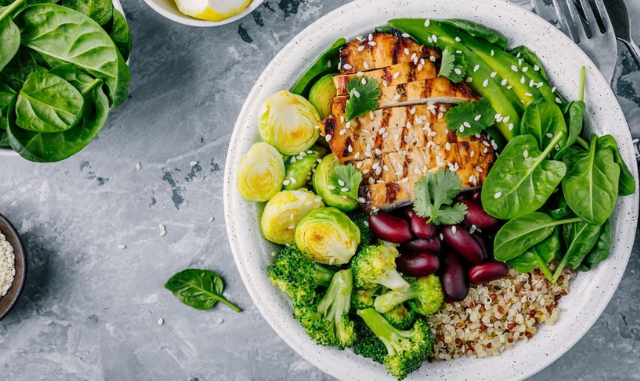
Reduce Inflammation
Inflammation is your body’s natural response to harmful substances that can trigger inflammation including eating refined carbohydrates, processed foods, alcohol, unhealthy fats, environmental toxins, and heavy metals. Bacteria infections, viruses and fungi can trigger inflammation as your body fights off the invaders. Injuries of physical trauma can lead to localized inflammation causing an immune response confined to a specific area of the body. It occurs when the body detects an infection or injury then sends immune cells and inflammatory mediators to the site to protect and repair the tissue. “ Chronic inflammation is also referred to as slow long term inflammation lasting several months to years. Generally the extent of effects of chronic inflammation vary with the cause of injury and the ability of the body to repair and overcome the damage.” PubMed
It occurs when your immune system sends inflammatory cells to the affected area to protect and heal it. Processed foods often contain high levels of unhealthy fats, refined carbohydrates and additives that can contribute to inflammation in the body. Refined carbohydrates like pasta, white bread, treats and goodies made with refined flour are quickly metabolized leading to blood sugar spikes which happens when your blood glucose (sugar) levels rise too high shortly after consuming food and can be a concern for people who have diabetes. Eating excessive amounts of sugar can trigger the release of inflammatory substances in the body triggering a variety of responses. Eating sugar causes a rapid increase in blood sugar levels leading to the release of insulin, a hormone that regulates blood sugar. Over time frequent spikes can contribute to insulin resistance, a precursor to inflammation. Consuming too much sugar can lead to the production of inflammatory molecules such as cytokines, small proteins secreted by immune cells that play a crucial role in regulating inflammation in the body.
They act as signaling molecules coordinating the direction of the immune response. Cytokines play a vital role in initiating and resolving inflammation in the body. They activate immune cells including macrophages and T cells to produce inflammatory mediators. Some cytokines such as interleukin 10 (IL-6) and tumor necrosis and factor alpha (TNFa) are pro-inflammatory cytokines. Chemokines guide immune cells to specific areas within the body. Inflammatory chemokines control the recruitment of effector leukocytes in infection inflammation, tumors, and tissue injury. “Inflammation is a physiological homeostatic response of the innate system toward infectious and noninfectious agents. Acute inflammation is triggered by the immune system and initiates a cascade of various biochemical events in order to address and eliminate these external factors.” ScienceDirect
Many of the inflammatory chemokines have a broad target cell selectivity and act on cells of the innate as well as the adaptive immune system. Inflammation chemokines act as chemoattractants acting on immune cells including monocytes, lymphocytes, neutrophils to sites of inflammation. This recruitment helps initiate and sustain the immune response to fight infection and tissue repair. Dietary choices can influence their release and activity impacting inflammation levels overall. Diets high in processed foods saturated fats, omega 6 fatty acids, and refined sugars stimulate the inflammatory cascade leading to increased levels of inflammatory markers like chemokines and cytokines. Anti inflammatory diets rich in fresh vegetables, fruits, whole grains, healthy fats including omega 3s and lean proteins beef, chicken, fish, legumes, eggs can help reduce inflammation by modulating chemokine release and activity.
Relieving inflammation with diet naturally combats cellular damage caused by injury, illness or arthritis. Eating a diet packed full of nutritious foods reduces inflammation due to their anti-inflammatory properties. Fruits and vegetables are packed with antioxidants, vitamins and minerals that combat oxidative stress, a key trigger for inflammation. Cruciferous vegetables like broccoli, kale, cabbage, Brussels sprouts, mustard greens, turnips, Bok Choy, Arugula, Collard Greens, berries, leafy greens contain bioactive compounds folate, vitamin c, tocopherols, carotenoids, and polyphenols which benefit health. Polyphenols are plant based compounds with powerful health benefits that help neutralize free radicals reducing oxidative stress protecting cells from damage. They can help manage inflammation in the body due to its anti-inflammatory effects reducing chronic conditions like heart disease, and arthritis. Polyphenols may help improve blood circulation, manage blood pressure, reduce inflammation, and lower the risk of cardiovascular disease.
Turmeric particularly its active compound curcumin is renowned for its anti-inflammatory properties. It can help reduce inflammation in conditions including prolonged states of inflammation that can lead to various diseases including autoimmune disorders, circuit in cancers, heart disease. Chronic inflammation can cause a wide range of various symptoms which may vary due to underlying causes and severity of the inflammation. Common symptoms of inflammation include fatigue, pain, swelling, weight gain, muscle aches and pains, joint pain and stiffness. Manage inflammation by adopting new lifestyle changes incorporating specific habits proven to reduce inflammation exercising regularly, and eating anti-inflammatory foods. Focus on berries, vegetables including kale, spinach nuts, seeds, whole grains, and fatty fish with omega 3 fatty acids like mackerel and salmon. These foods are packed with nutrition and reduce inflammation in the body.
Cheers!
Patricia Lynn
Images Courtesy of nibixer at AdobeStock